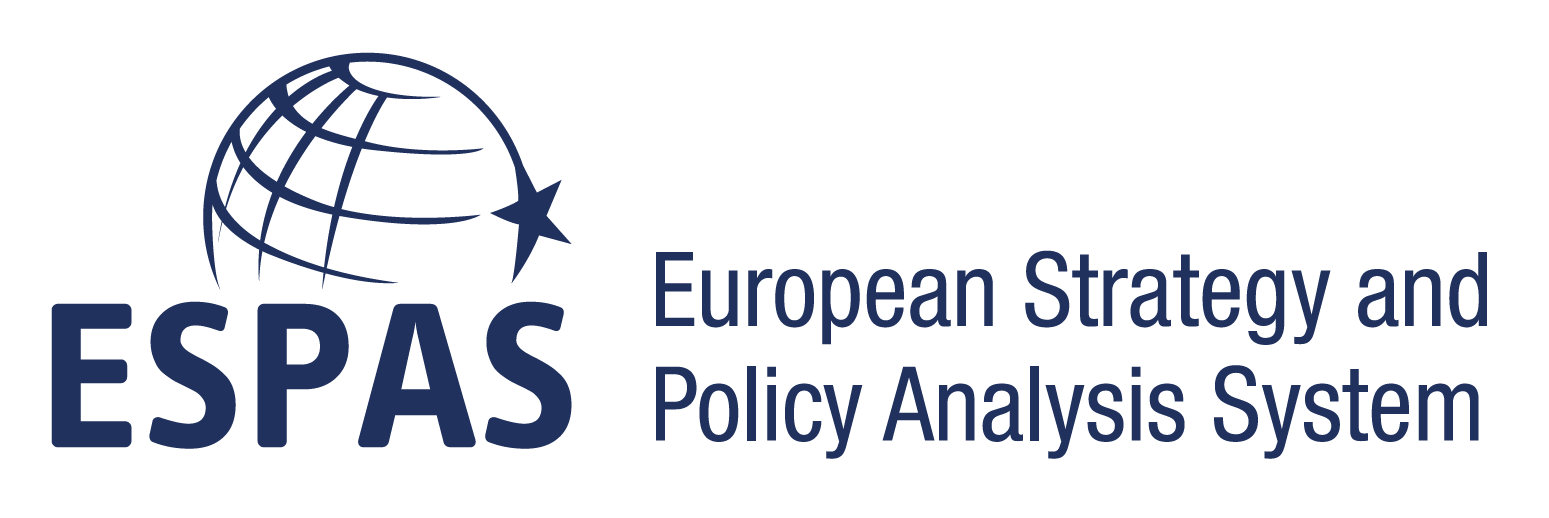Written by Eamonn Noonan and Julian Göpffarth
What kind of society – national, European and global – do we want to live in by 2030? Which societal trends will shape the coming years? These questions were discussed by the second panel of the ESPAS-conference on Global Trends 2030 – The Economic and Technological Revolution on 13 November 2013. The session was chaired by the President of the EU Committee of the Regions, Markku Markkula.
Global Societal Trends

Dr Svitlana Kobzar gave an overview of five key trends, based on the RAND report on global societal trends carried out for ESPAS.
The first trend is the rise of the global middle class. A proportion of the population in developing countries will enjoy increased wealth, and this will empower many as active and critical citizens. It will also alter their views on social risks and dangers. The new middle classes will be more demanding towards their governments. Will governments be responsive to rising expectations? Or will unanswered hopes produce disillusionment and radicalisation? Kobzar suggests that regions will have an important role as intermediaries prompting government responsiveness.
The second major trend is the continuing growth (in developing countries) and ageing of the populations (in developed countries). Ageing will strain the resources of the welfare state.
The third trend is linked to the second: groups such as migrants, young people and older generations risk greater marginalisation in the labour market. Austerity measures have already has this impact. Investment in human capital through early education is needed to avoid a lost generation – not only of young people, but also of migrants and refugees. This in turn can result in radicalisation and social unrest.
Fourthly, patterns of migration are changing. There are 60 million displaced people worldwide, and there is a refugee crisis on Europe’s doorstep. Increasing urbanisation and the further isolation of rural areas are also apparent.
Finally, interconnectivity is growing all over the world. We can expect rapid, but incremental changes in some cases, and disruptive changes in others. We will also need to address an increasing digital divide between and within countries.
[youtube=https://youtu.be/UElLjXsJN7Q&w=640&h=389]
Overcoming incrementalism in order to move towards more sustainable societies
The Executive Director of the European Environment Agency, Dr Hans Bruyninckx emphasised that Europe has to do more to achieve a low carbon society and to move towards a more sustainable society. It is no longer enough to focus on incremental efficiency gains. Rather, we need bold steps, embedded in a common European strategy linking sustainability with urban life, agriculture and mobility.
Read the complete report from the conference.
Even with present commitments, the world is facing a global temperature rise of 3%. However, Bruyninckx stressed that we have made progress in the last 20 years. The 1997 Kyoto Protocol included only 30 countries, whereas almost every country on the planet will attend the 2015 Paris Climate Summit. Moreover, 2014 is the first year in history in which more capacity was installed for renewables than for traditional energy sources.
Much greater investment in renewables is needed, including in India and China. Monitoring is essential. Solidarity with developing countries – with significant levels of investment – is also crucial. We should prepare for the low-carbon future. Bruyninckx noted that Europe, more than any other continent, has the technological and industrial infrastructure to remain competitive after decarbonisation, and even to become “the Silicon Valley of the 21st century”. Private and public investment should support economic actors so that we keep and expand this comparative advantage. Other countries, and China in particular, will not hesitate to exploit new market opportunities in order to become more competitive globally.
Connecting the dots – reinforcing the cooperation between private and public actors
Dr Cécile Wendling, a foresight specialist working with a private corporation, urged more cooperation and dialogue between private and public actors. A ‘join the dots’ approach would allow a more comprehensive response to global challenges.
An example of such collaboration is the ‘She for Shield’ initiative, which involves private companies and the World Bank. This seeks to improve insurance protection for women worldwide, and thereby to empower women to play more important roles in public life. Innovative approaches can also assist in the reception and integration of refugees – many own a smartphone, which can give access to services such as micro-insurance. For the elderly, a breathing monitor in the home can prevent medical emergencies by detecting problems early.
Dr Wendling noted that more companies are using Integrated Reporting, giving details of their environmental impact and their human capital as well as their financial returns.
Rising inequalities and the fragmentation of growth – risks and chances
Dr Franck Debié, head of the European Parliament Secretary-General’s EP 2025 Team, noted that trends in demography and labour markets are exacerbating inequality between and within countries. For both private households and small and medium-sized companies, access to credit is becoming more difficult. There is a growing gulf between cities such as London, Istanbul and Berlin, which attract investors on a global scale, and rural areas facing falling prices and investment. We also see an emerging division of economies and labour markets into formal and informal sectors. The formal economy is well regulated and provides job and social security with good salaries; the informal sectors with low paid ‘outsiders’ are less visible, less regulated and lack security.
Nevertheless flexible labour environments can prompt social innovation and individual empowerment. Solutions are not going to come from centralised actors such as governments, and society will not wait for institutions. Often, the most important innovations come from companies, NGOs and individuals. To make the best of the present situation, labour mobility in Europe needs to improve. Unlike the US, a large majority (sometimes 95%) of the population of European cities are born there. We should support mobility and connectivity.
Conclusion – Pro-actively shaping the future instead of reacting to crisis
The panel agreed that the various global trends are interlinked. This strengthens the case for long-term strategic analysis. Hybrid forms of cooperation support for decentralised innovation, investment in the future and the pursuit of long-term policy choices are all needed if Europe is to shape the future, rather than be shaped by it.








Be the first to write a comment.